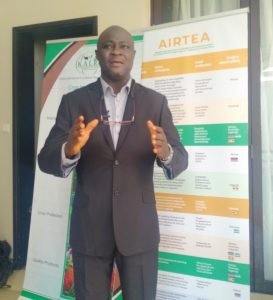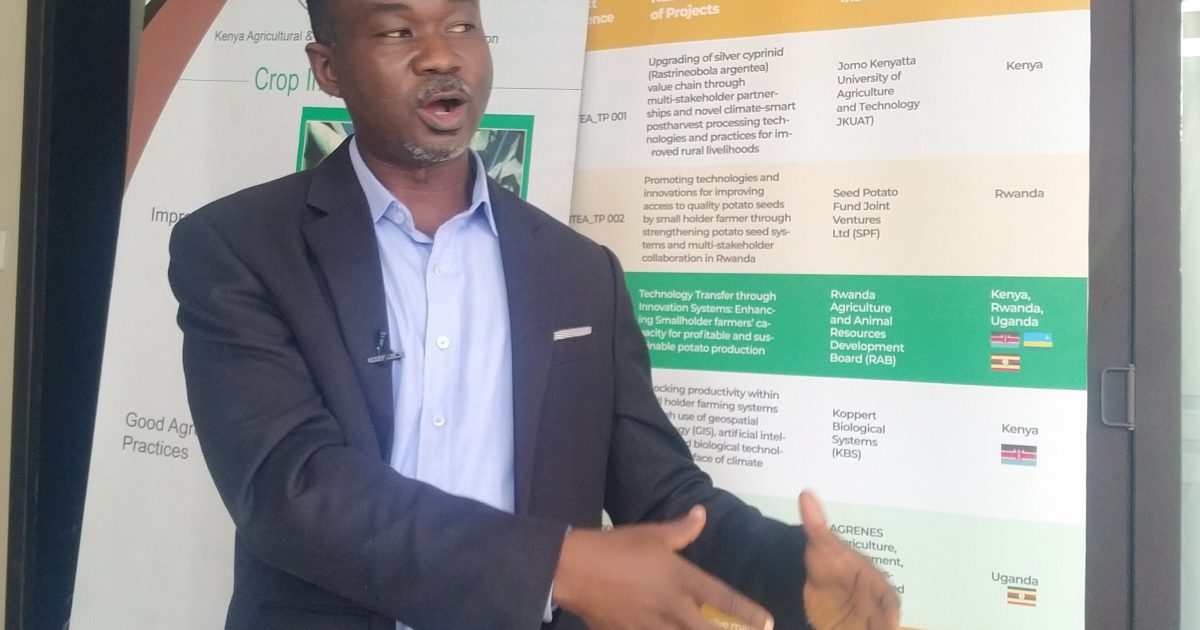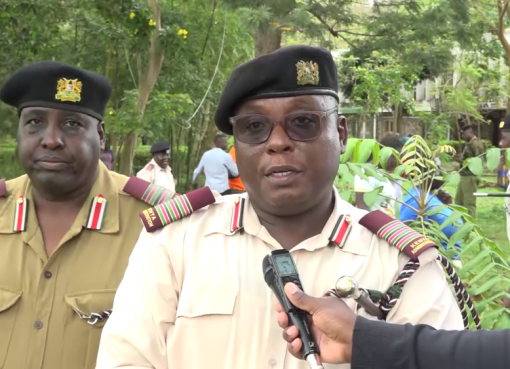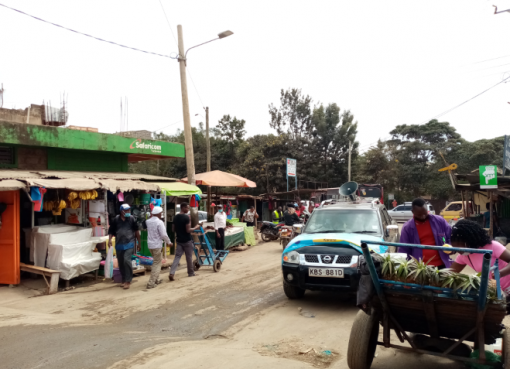Kenya is among three countries in the region implementing a project on Strengthening the Knowledge and Innovation Ecosystem for Inclusive Rural Transformation and Livelihoods in Eastern Africa (AIRTEA).
The project being carried out in Kenya, Uganda and Rwanda is geared to achieve a sustainable agricultural livelihoods and rural transformation by fostering an inclusive innovation environment.
Speaking during a high-level strategic meeting to sensitize policymakers about the Innovation Platform (IP) approach and its role in fostering agricultural research for development, Director Dairy research institute from Kenya Agricultural Livestock Research Organization (KALRO) Dr. Evans Ilatsia said the two-and-a-half-year project would revolve around the scaling up of agriculture technology in east and central Africa.
“The project is bringing about several IPs actors and stakeholders together around a given value chain such as potato value chain to work in a synchronized way and be able to upscale and increase production,” he said.
Dr. Ilatsia said overall, the project would try to bring to speed policy makers to mainstream the concept of innovation platform in accelerating uptake of agricultural technologies to boost productivity.
He said the approach they would be using would be geared towards the role of women and youth in the agriculture value chain and the role they played in forming innovation platforms considering that the two actors play a big role in the agriculture sector.
AIRTEA, he explained, would have11 projects being implemented in the three countries and Kenya would be involved in four of the projects and among the four is the Irish potato one that KALRO is implementing and has already formed the innovation platform on it.
“KALRO comes in from lessons learned from before in terms of innovation platform and the main focus is to come up with sustainable innovation platforms that can be able to upscale productivity,” he said.
Dr. Ilatsia noted that working in synergy in that kind of innovation would see mainstreaming in government policies’ framework and this guarantees sustainability of IP and consequently increase agricultural productivity
Dr. Kwaku Antwi, AIRTEA Project Lead from Forum for Agricultural Research in Africa (FARA) one of the implementing partners in the project said that this project would help support rural livelihoods particularly women and youth who are the backbone of the economy.
He explained that the project is being funded by the European Union at a cost of Sh595 million (EURO 4.8 million) with 85 percent from the donor and 15 percent from the consortium partners which is Association for Strengthening Agricultural Research in Eastern and Central Africa (ASARECA), Forum for Agricultural Research in Africa (FARA) and the East African Farmers’ Federation (EAFF).
“The three countries, Kenya, Uganda and Rwanda will have 11 selected third-party projects with various budgets allocated to support each project from animal products, dairy, fertilizer, crop production and also fish by looking at innovative projects that do things differently,” he said.
Dr. Kwaku noted that over the years, Africa has been receiving support from donors but it is not seen translating into livelihood improvement and at the same time technologies haven’t been moving as expected because most often than not they are borrowed and yet they do not suit the environment.
“Our objective in this project will be achieved across the said value chain by building capacity of women and youth with beneficiaries being able to access financial resources from other financial institutions,” he said naming KCB foundation who they are working with to ensure that when the project exits there will be sustenance to move on and thus transformation of the rural lives.

Dr. Kwaku said the projects were also built working with the local people, including policy makers and basically all the people along the value chain engaging together to ensure all are participating
Dr. Oluwole Fatumbi, FARA innovation systems expert said the biggest challenge in agricultural research for development is that stakeholders are not working together but operating in silos thus creating a distraction of the systems configuration.
“The framework for conducting agricultural research is lopsided, it does not give recognition to multi-disciplinary confines and that is part of the system that needs to be addressed”, he added.
The project, he noted, has come up with the Integrated Research for Development (IR4D) concept that ensures research is demanded unlike what has been there before when researchers only think of the problem and generate a solution without aligning it with the adoption and need of the end user.
Dr. Fatumbi explained that one finds there are over 1000 of technologies but they are only on the shelves in the various institutes because a farmer could only use them during the tests but they do not meet their needs.
“IR4D brings stakeholders together and ensures cross learning, exchange of knowledge and learning together, ensures public and private work together as a unit and in harmony ensuring that every work done has a market connotation in it. If there is no buyer of a certain commodity then there is no use of producing it,” he said
He added that IPs ensures all the value chains from farmers, researchers, extension agents private sector and Policy makers come together, interact, identify and prioritize on the problems before they all agree to source for a solution.
“Innovation is not a synonym for something new but in the agricultural system, it refers to use of knowledge and technology or to generate benefits for the end users,” he said adding that data collected from 36 innovation platforms showed quick impact.
Dr. Fatumbi said that IP has become more or less the paradigm interacting platform that is bringing change and that researcher is only a partner but the farmers now have a voice to demand, reject or accept and nothing is forced down their throat but both have first time linkage and same level of interaction.
Currently across the continent, he said, there are 4,000 total number of IPs and which keeps on increasing but however said that as great as this sounds, the innovation platform is not going to get to scale without conception getting institutionalized within a country but must get into the country’s agricultural sector, be in the planning processes and also requires political will.
“If we are to institutionalize innovations platform, we must endear, lobby policy makers ensure they understand it and in turn they need to invest into it,” he said noting that countries needed to establish the innovation platforms at country levels for particular sectors in fish, small ruminants, livestock with technocrats taking data, be able to find targets and presenting it to the country
The expert added that the data would be able to provide the gap, the current yield and be able to show how and what to invest in and this will in turn be able to save Africa from the shame of being the net importer of food.
“Africa, should ensure that IP is done. It’s simple, it can be done and we can rescue our generation from food insecurity and all sustainable agrarian livelihood and poverty,” Dr. Fatumbi said.
The institutionalization of the IP model in national processes is anchored on the understanding that there is a need to influence policy makers and other decision makers to take up the IP as a planning tool that can be used for planning of agri-value chain activities.
The three specific objectives under the project is to strengthen the capacities of youth and women in East Africa’s multi-stakeholder innovation platforms and link to solutions within national, regional and global food systems. , facilitate technology transfer and uptake through learning routes and multi-stakeholder engagement and Improve profitability and employment opportunities along agricultural commodity value chains by establishing national and regional Agricultural Business Learning Alliance (ABLA) platforms.
By Wangari Ndirangu





